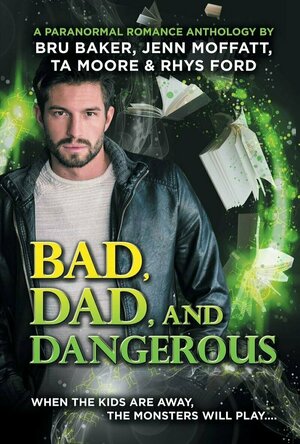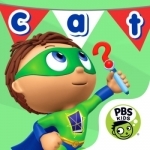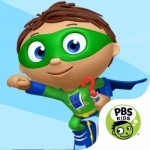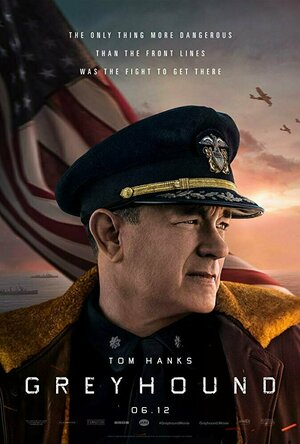
Virtual Office Pro
Productivity and Business
App
Virtual Office Pro is the most powerful app for the iPad, is like having your office on your pocket!...
Bob Mann (459 KP) rated Greyhound (2020) in Movies
Aug 9, 2020
The battle of the Atlantic, which ran from 1939 to the end of the war, was a key battleground of World War 2. Failure to supply the European battlefront with fresh supplies and troops from the States would spell certain failure. (The wiki page addressing this is here.) But it's a field of combat that has been relatively overlooked at the movies. Of the handful of feature films, the most famous are that famously stiff-upper-lipped British offering "The Cruel Sea" from 1953 and Wolfgang Petersen's original 1981 U-boat film, "Das Boot", seeing it from the German's side.
Here, the subject gets the full Tom Hanks treatment. Not only does he star in the movie, but he also wrote it, based on the C.S. Forester novel "The Good Shepherd".
We join Captain Krause (Tom Hanks, with a strangely German-sounding name!) on dry land awaiting his beloved Evelyn (Elizabeth Shue) for a proposal. But that's the last dry land we see in the movie, since Krause is captaining the US destroyer "Greyhound" on its maiden voyage to protect a convoy of UK and US ships heading for England. But danger lurks beneath the waves as a pack of U-boats attempt to sink as many vessels as possible.
The issue with a movie about a war-time transatlantic crossing is that the ships are grey, the sky is grey and the sea is grey. It's a monochromatic and rather depressing context for a movie. To combat that, the CGI used to recreate the action needs to be good, and thankfully the film delivers in that department.
Where I had quibbles - and I'm not sure whether this was in Hank's original screenplay or the result of director Aaron Schneider's attempts at "added flair" - was in stopping the action mid-scene for a zoom up above the clouds to see the Aurora Borealis. Unnecessary and distracting.
Where the film really scores is in the tense action sequences. As a viewer, I found myself straining forwards in my seat for the "ping" of the sonar! The cat and mouse games being played out with the hidden foe are certainly well done.... albeit a colleague of mine refuses to watch it because "torpedoes don't bounce off the sides of ships" as shown in the trailer!
Perhaps what might have made the film richer still would have been the view from the German side. Another star name as the 'heard but never seen' mocking U-boat commander might have turned this into even more of a Shakespearean battle-royale.
Overall, this is an enthralling and enjoyable watch that I would recommend. Tom Hanks delivers YET another compelling captain role. It seems to be the rank that he naturally gravitates to.... having the gravitas to command, but not being too far removed from the common man. Here he is supported by the omnipresent Stephen Graham, also equally good.
It's a great shame that this never got the wide-screen cinematic release, because Greyhound deserved it. Who knows, perhaps with cinemas spasmodically opening up, there's still time for a national release. That would be good, and I'd certainly go and see it again on the big screen.
And, by the way, the answer to my trivia question is this film - Greyhound - and 1917. The reason being that in both movies the actresses named were the sole female players within the whole cast.
(For the full graphical review, please visit https://bob-the-movie-man.com/2020/08/01/one-manns-movies-film-review-greyhound-2020/ .)

Bad, Dad, And Dangerous Anthology
Rhys Ford, TA Moore, Bru Baker and Jenn Moffatt
Book
Bad, Dad, and Dangerous Anthology When the kids are away, the monsters will play. School’s out...
Paranormal Romance MM MF

WineRatings+ by Wine Spectator
Food & Drink and Lifestyle
App
FREE 30-DAY TRIAL! Try WineRatings+ today and receive a FREE 30-day subscription to Wine...

Super Why! Phonics Fair
Education and Games
App
Parents' Choice Award Winner! No in-app purchases - all 60 word families are immediately available...

KidloLand: Kids Nursery Rhymes
Education and Games
App
KidloLand is an award-winning app for kids (1-5 yrs) with 1000+ nursery rhymes, songs, games and...

Homer - Kids Learn to Read App
Education and Entertainment
App
Welcome to Homer — the #1 learn to read program for kids ages 2-8, shown to increase early reading...

Super Why! Power to Read
Education and Games
App
UPDATE: Parents’ Choice Award-winning Super Why app now has 50% MORE CONTENT featuring new stories...

Phone for Play: Full Version
Education and Games
App
~~> The largest collection of fun educational activities in a single app! ~~> Top #1 Education app...

Read4Kids - Kids learn to read in 20 easy lessons
Education and Book
App
Read is a 20-lesson program designed to help kindergarten and elementary school age children (4–8...
